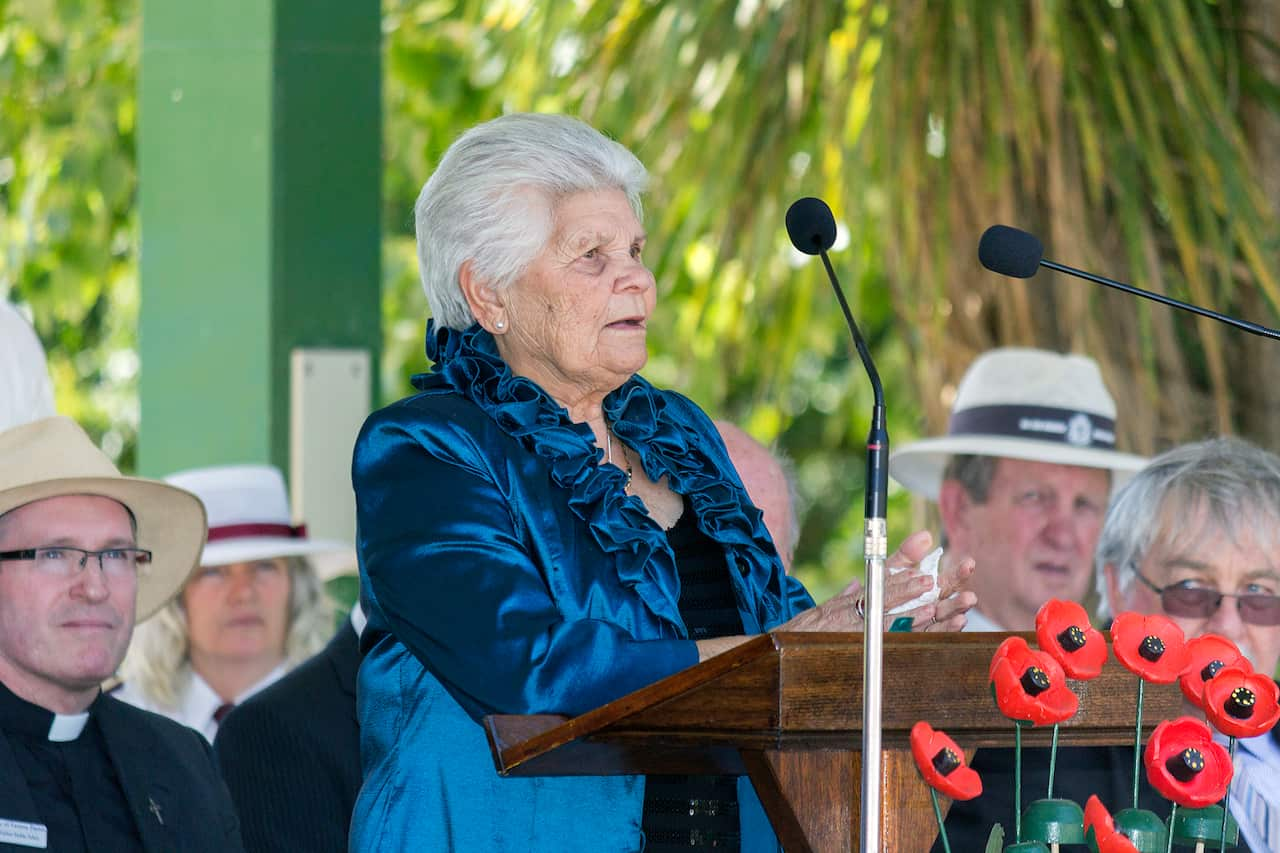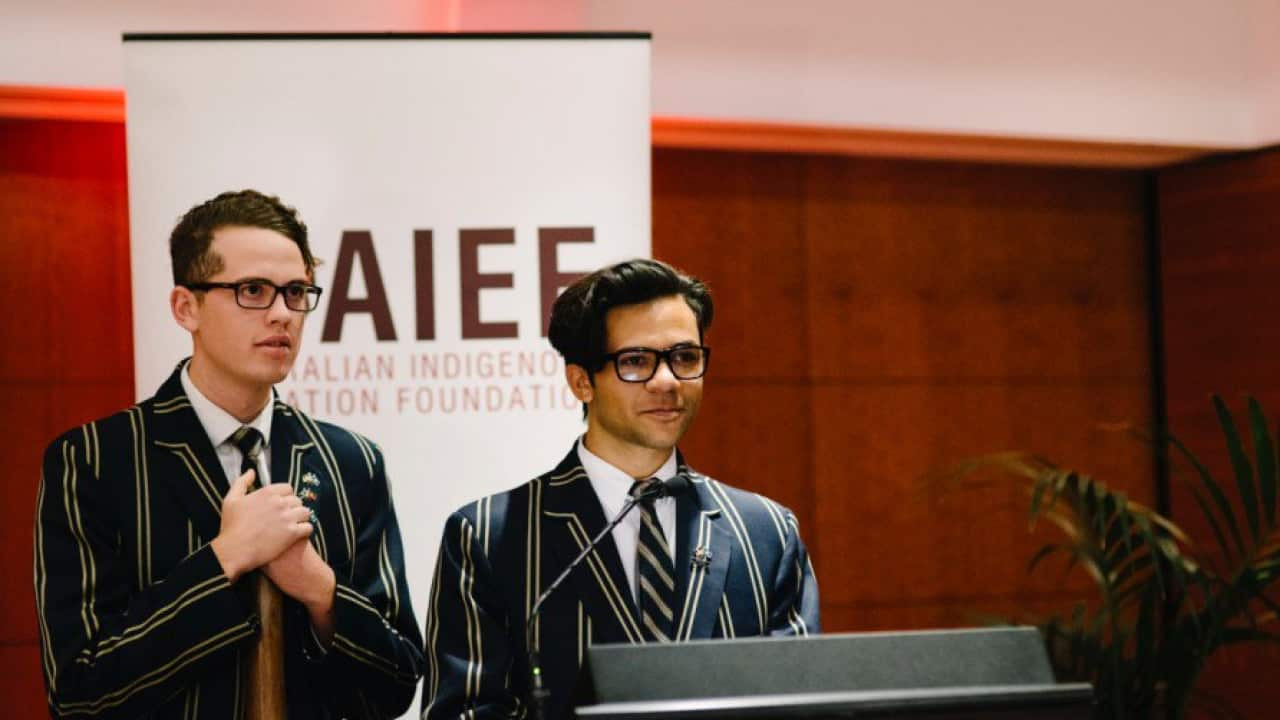For thousands of years, the protocols of has been practiced within Aboriginal and Torres Strait Islander communities. If you were crossing into someone else's country, it was a requirement to send a request to the land's people to be granted permission to enter and be offered safe passage and protection. This in turn required the visitor to acknowledge, adhere to and respect the rules of the country that was being entered.
Yawarllaayi/Gomeroi elder who has worked within the Aboriginal health and legal fields for many years says that these protocols have never disappeared but the way in which they are expressed, despite having gone through many shifts, especially within the last 200 years.
"Aboriginal people are always aware if they are in another people's country, and especially talking about land in other's country.
A first it was a principle for us – it wasn’t expressly stated, but there was an understanding that there was a traditional protocol - that went way back before the invasion of the country. If people wanted to [venture to other's lands], it was mostly men who wanted to have discussions with men from another country or nation – they would carry a message stick, asking properly.
That was the protocol that they could meet. It’s always been something that we did as a people, understanding and observing the fact that when you are in somebody else’s country, that you acknowledge them."
It’s always been something that we did as a people, understanding and observing the fact that when you are in somebody else’s country, that you acknowledge them.
Entertainer, that in the 1970s he and writer Richard Walley brought the Welcome to Country custom into the mainstream at the Middar Aboriginal Theatre after visiting Pacific Islander dancers insisted on being officially welcomed onto the country they were visiting. Dingo said he got permission from his elders to share the practice with non-Aboriginal people and this event was then taken up by the Australian Tourism Commission, and followed on from there.

Members of the House of Representatives stand during the opening of the 44th Parliament on Ngnunnawal Country (MARK GRAHAM/Getty Images) Source: AFP
However, when we look at the modern practice of Acknowledgement to Country, whereby event openings, public talks, school assemblies - even, SBS World News' broadcast - pay respects to the traditional custodians of the lands, there isn't a clear date that this practice started to become the norm.
In 2010, the Federal Parliament made opening the session with an acknowledgement of country and today, it is official protocol to begin parliament with the Lord's Prayer and an acknowledgement. However, years before this installment, it's said that the Native Title movement and specifically the Mabo decision greatly altered the way that official events, meetings and formal gatherings around the country were opened.
The Native Title Movement.
Justin Mohamed, the former CEO of says that changes started to happen around 25 years ago.
"It’s hard to put a date or official launch of when Acknowledgment to Country actually started to happen ... a government of the time or a business or local council started it and it’s grown from there, but it was definitely around that time, about 25 years ago (Mabo decision), that it started. At first a lot of people questioned it and thought 'why'? They didn’t understand why we would do it, but it definitely has grown now to be more the norm than not."
At first a lot of people questioned it and thought 'why'? They didn’t understand why we would do it, but it definitely has grown now to be more the norm than not."

Wiradjuri Elder, Aunty Isobel Reid gives a Welcome to Country in NSW. (Wikicommons) Source: WikiCommons
Barbara agrees with this timeline. "The Mabo decision had just come down and the council for Aboriginal Reconciliation had done work with local shire councils, in particular local government people … and that’s when councils started raising the Aboriginal Flag at council offices around the state, in particular. I noticed that in NSW people started to formally acknowledge traditional owners when they held meetings or conferences. That was when it became really the thing to do."
The practice is not without some reservations within the community. "I often wonder when I hear it, whether it’s just something that people feel they have to say or whether they think about it or understand what the real meaning is." Flick added
The ways of welcoming and acknowledging country differ greatly between nations, there is not one way. It may be in the form of song, dance or simply a smoking ceremony.
Is it tokenistic?
, Head of First Nations programming at the Sydney Opera House, Rhoda Roberts expressed dismay at some of the ways that Welcome and Acknowledgements to Country were being carried out and that some of them 'lacked heart'.
''It's difficult. I think what's happened is that everyone's got excited about doing the right thing and being PC. I say tokenism in that it's wonderful you're doing it but I often feel you don't have any heart for it. Now the next phase of it is to actually understand the spirituality of it." Roberts said.
Flick says that the act may be tokenistic for some, but the speaking the words and the research that is required to inform someone that is doing an Acknowledgement to Country means that they will be picking up knowledge and learning regardless, and this is a good start.
"It’s one of our protocols. So they should do it. It’s a sign of disrespect if they don’t.
So you are caught a bit between whether or not people are sincere in their acknowledgement, but also feeling that, whether or not they are, they need to speak the words out loud - that this always and always will be Aboriginal land.
It doesn’t matter what they try and draw over it ... lines of States and calling our rivers different names ... underneath that Whitefella map there is an old map that we still acknowledge and know about."
It doesn’t matter what they try and draw over it ... lines of States and calling our rivers different names ... underneath that Whitefella map there is an old map that we still acknowledge and know about.
Mohamed echoes this sentiment and says that Acknowledgement to Country is a vital part of the reconciliation process. "I think it’s a very important part of reconciliation. It’s exactly what it stands for, the acknowledgement that the home, the country or place that you are meeting on, you are visiting. And you would do that if you went in to someone's house and they were hosting you. You would say 'thank you' and acknowledge what they have done for you. So it’s a really nice, early part of the relationship to get right." he said.
Mohamed continues,
"Reconciliation naturally goes beyond the tokenistic as those people that plan events and do business, they find out where their business is situated and whose country that is, and they start doing a bit of research, talking to local Aboriginal and Torres Strait Islander people and finding out the history of the land that they do their work on. So it’s a real cultural exchange and awareness that comes out of all of this is real."
Flick says that this is just one part of a larger process. "I feel like somehow the conversation about constitutional reform doesn’t make much sense to me when there is everyday ongoing racism, discrimination, punishment, in most of our lives everyday. So Acknowledgement of Country is fundamental to the respect that needs to be shown, it should always be shown. Not just by Whitefellas but by our own mob when we are speaking in other people’s country."
Like the content? Follow the author












